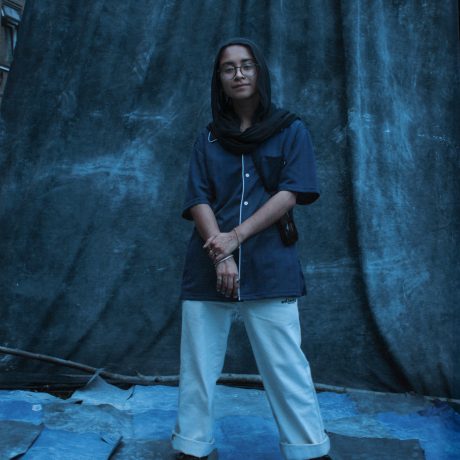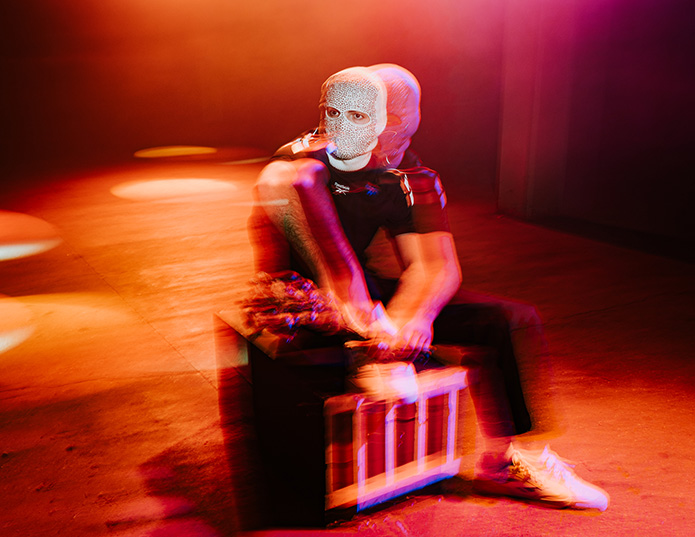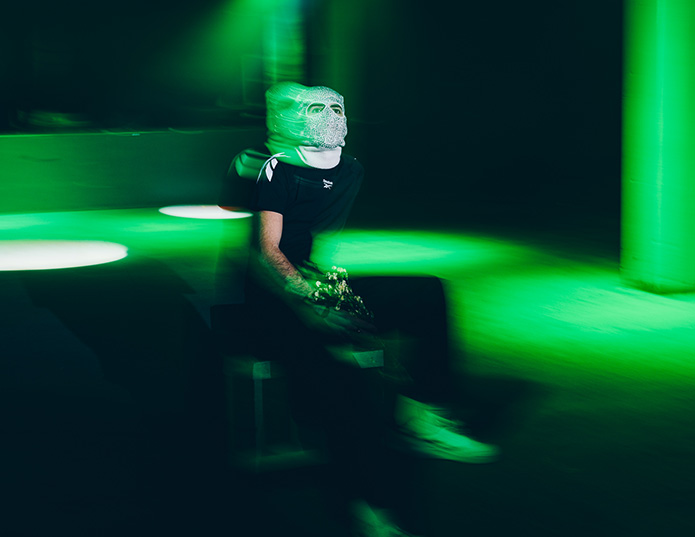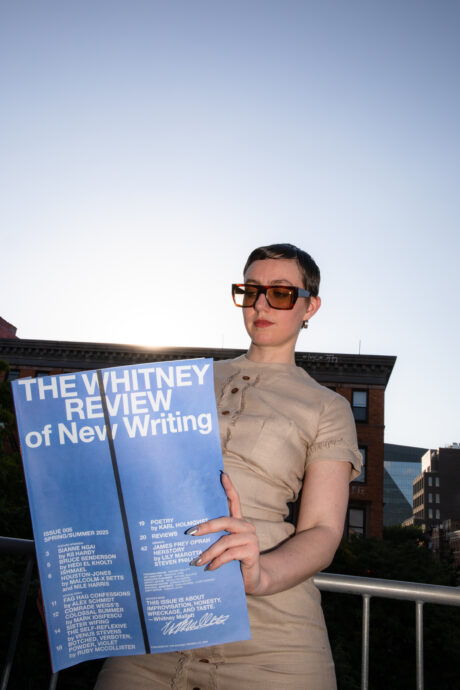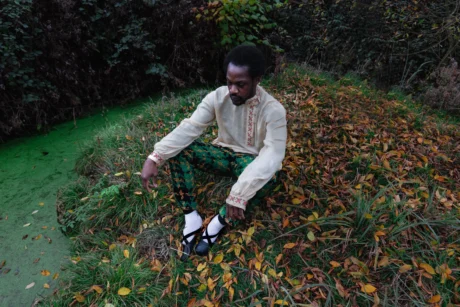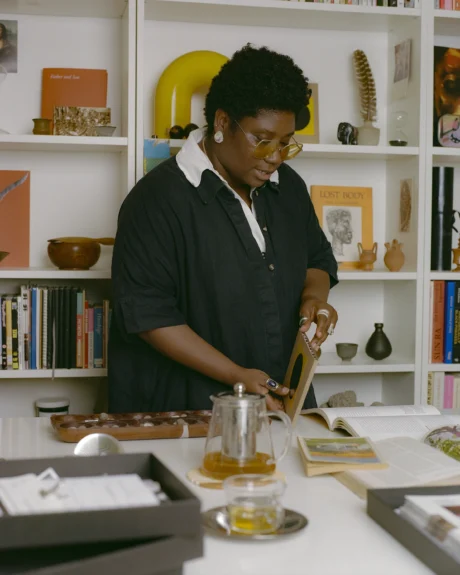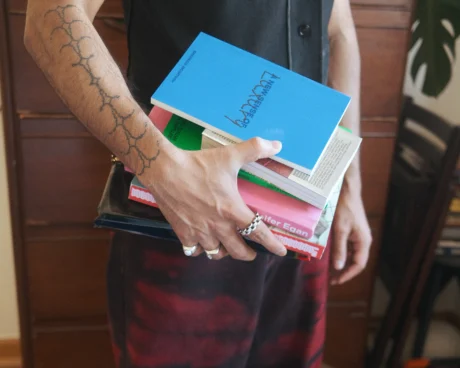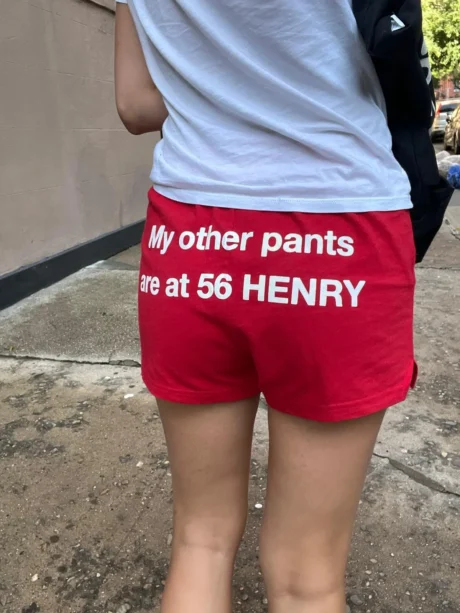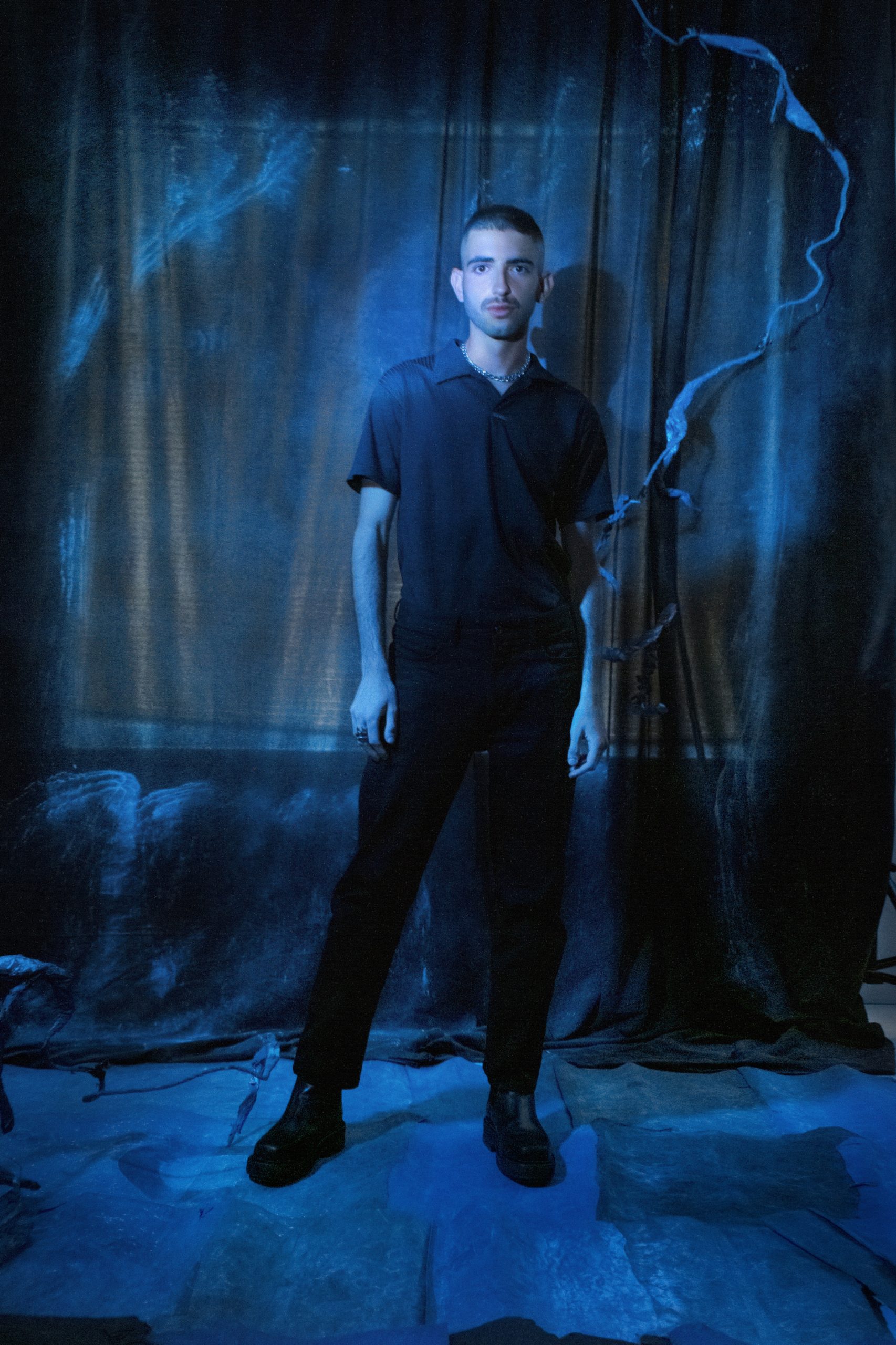
Arab artist Hussein Al-Chokhdar’s discipline involves installation, sculpture, visuals and audio, culminating in immersive performance pieces that draw directly on personal experience. He graduated from the Glasgow School of Art in 2021 and is based between Cairo and Glasgow.
‘State of the Nation’ is a special series in which artists discuss how living in the UK informs their work and their ways of thinking about unity and identity, home and heritage.
As an Arab who is exploring queerness and self-identity, there are many traditional stereotypes and stigmas that have a big impact on me every day. It’s difficult when I create work because I will always have negative responses from back home haunting me. It’s important for me to portray those daily struggles in my work, tackling the pain, censorship and vulnerability that queer people of colour go through all over the world.
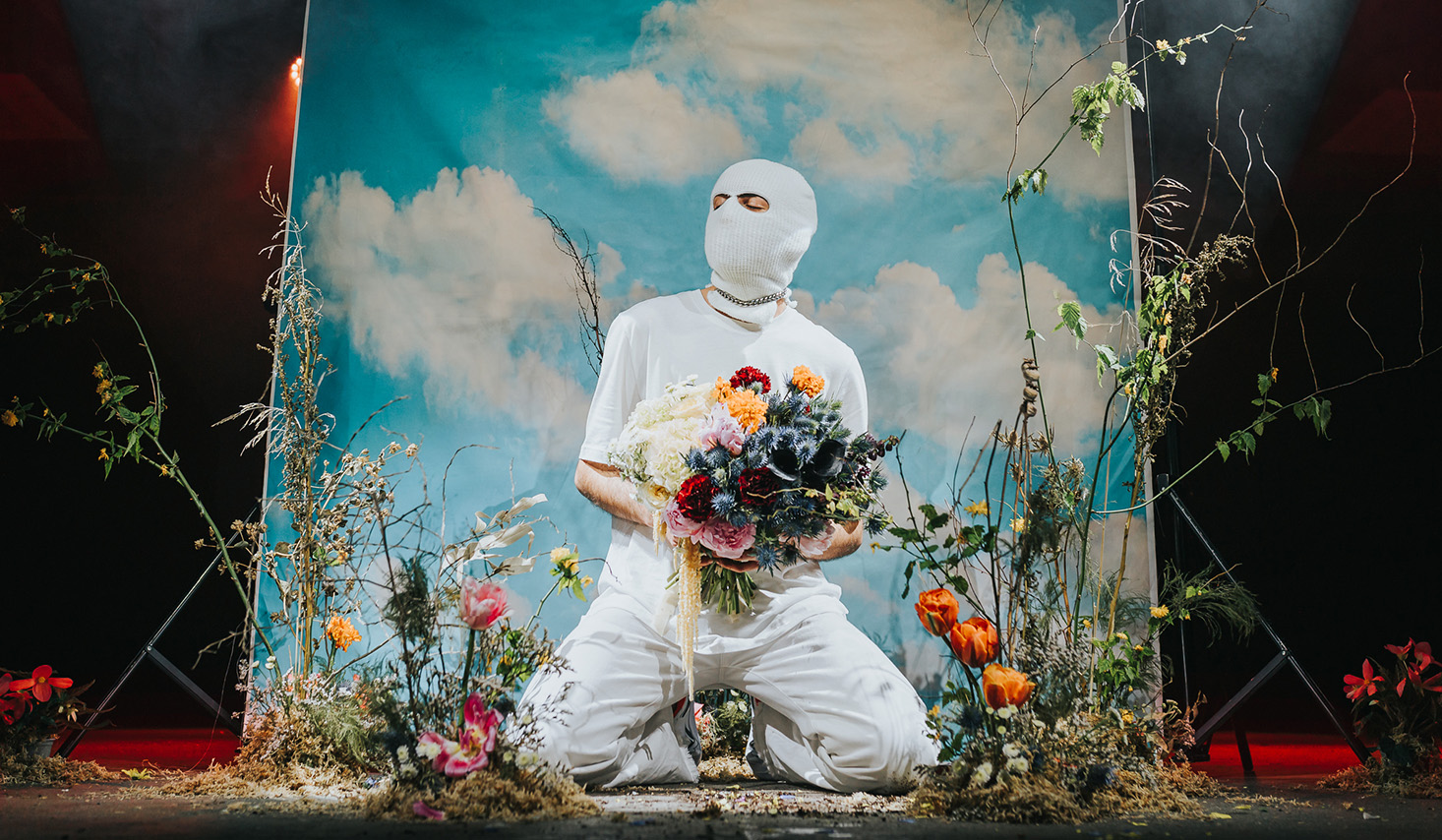
For most of my pieces I have developed a masked persona, which I created after I received backlash at home for a number of my performances. The masked persona highlights vulnerability and mental health, which in the Middle East are not much talked about. In that persona I’m still speaking as HUSS, but I’m also speaking for a community rather than just myself.
“There has always been a stigma in Arab countries where people are like, ‘Oh, you want to be an artist. What is that?’”
I work best when I’m upset or angry, and when I feel silenced, which is why all my performances are very intense. I’m very bad at being vocal about my emotions, so by putting performances together that are a combination of visuals, audio, installations and sculpture, I’m able to translate those emotions and temporarily transport the audience into my life.
In my work you will see the repetition of sand, of deserted places, of flowers. The desert, significantly, is a symbol of isolation and alienation. I shot a film in 2019 with my mum in a desert in Cairo that is five minutes drive from my home. It’s about feeling alienated in your home, and in the place you live in now.
There has always been a stigma in Arab countries where people are like, “Oh, you want to be an artist. What is that?” Especially with Arab men, family members assume that you’re either going to be an engineer or a doctor. Your future is being pointed out for you. But I was very lucky that my parents supported me because it isn’t very common in the Arab world.
“I’m very confident and lucky to call Glasgow home now. Safe spaces in Glasgow really played a big role in me finding myself”
Moving to the UK has totally changed me as a person. I’m very confident and lucky to call Glasgow home now, especially because of the chosen family I have here. Safe spaces in Glasgow really played a big role in me finding myself. When you think of the UK, you think of London straightaway, but I wanted somewhere different that I could explore.
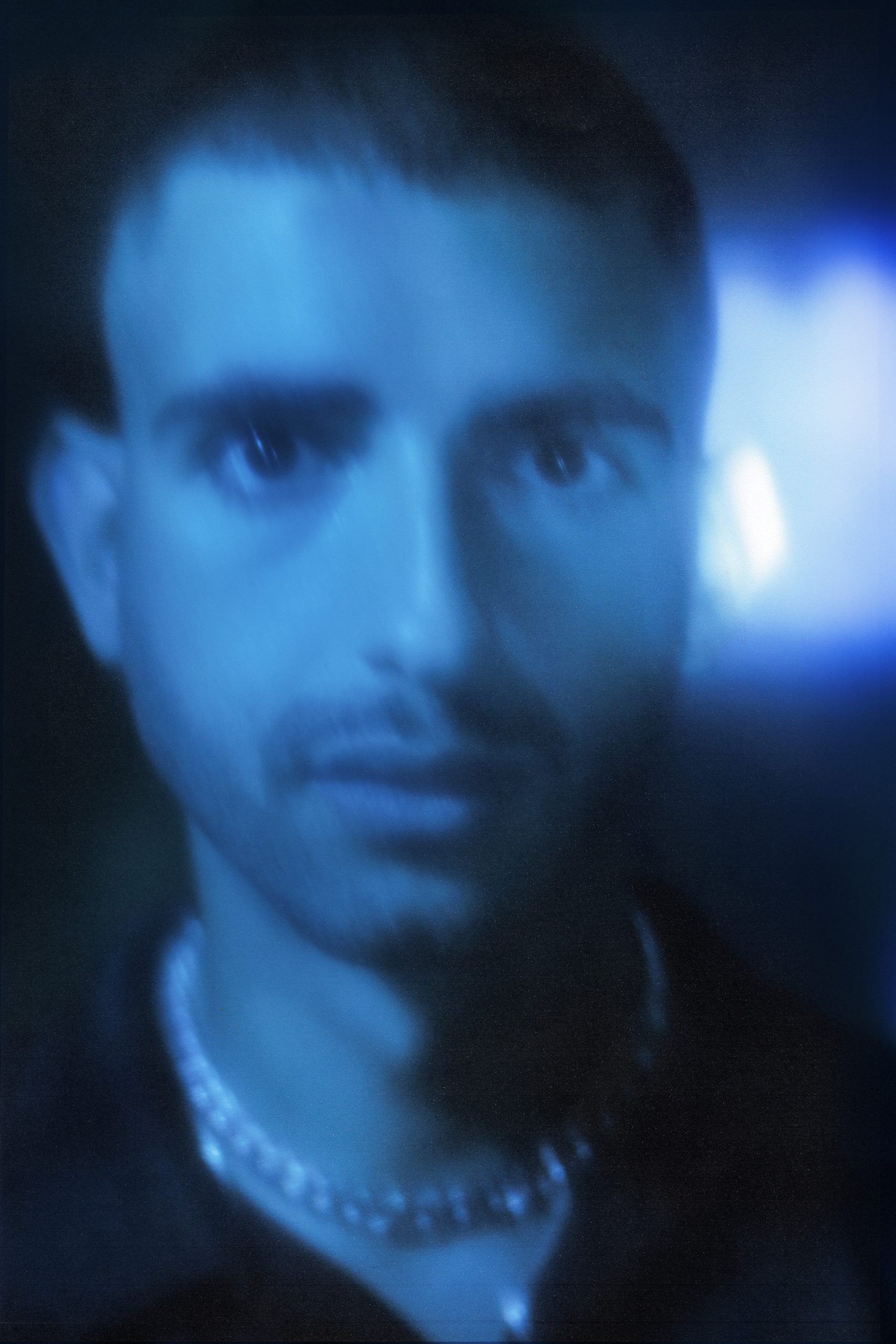
Hussein Al-Chokhdar photographed by Furmaan Ahmed for Elephant
My journey here has meant that I found a voice, one that I genuinely struggled to find for years. Not only did it help me to me find myself, and to find my true identity, it also developed my relationship with people back home.
“My journey here has meant that I found a voice, one that I genuinely struggled to find for years”
More recently, after spending four months back in Cairo, I’ve come to terms with my identity and the fact that my life is chaotic, and I’ve managed to find the beauty. I know that Egypt, despite any complications, despite everything, will always be home to me, and I hope to speak up for people there. It will never be perfect, but it’s a situation that you have no choice but to adapt within.
As told to Louise Benson, Elephant’s deputy editor
This article appeared in Elephant 46: Autumn Winter 2021, available to buy here
